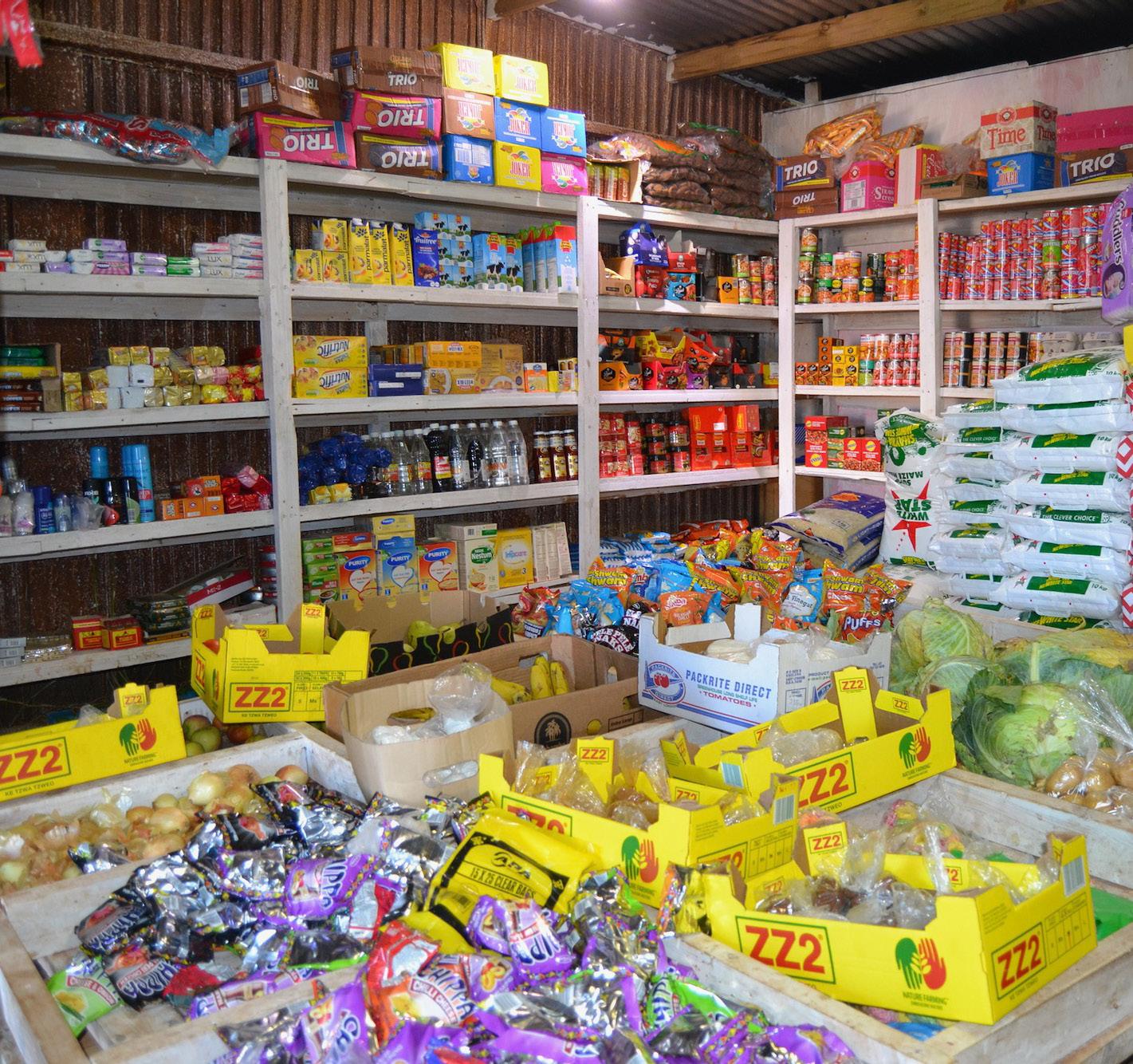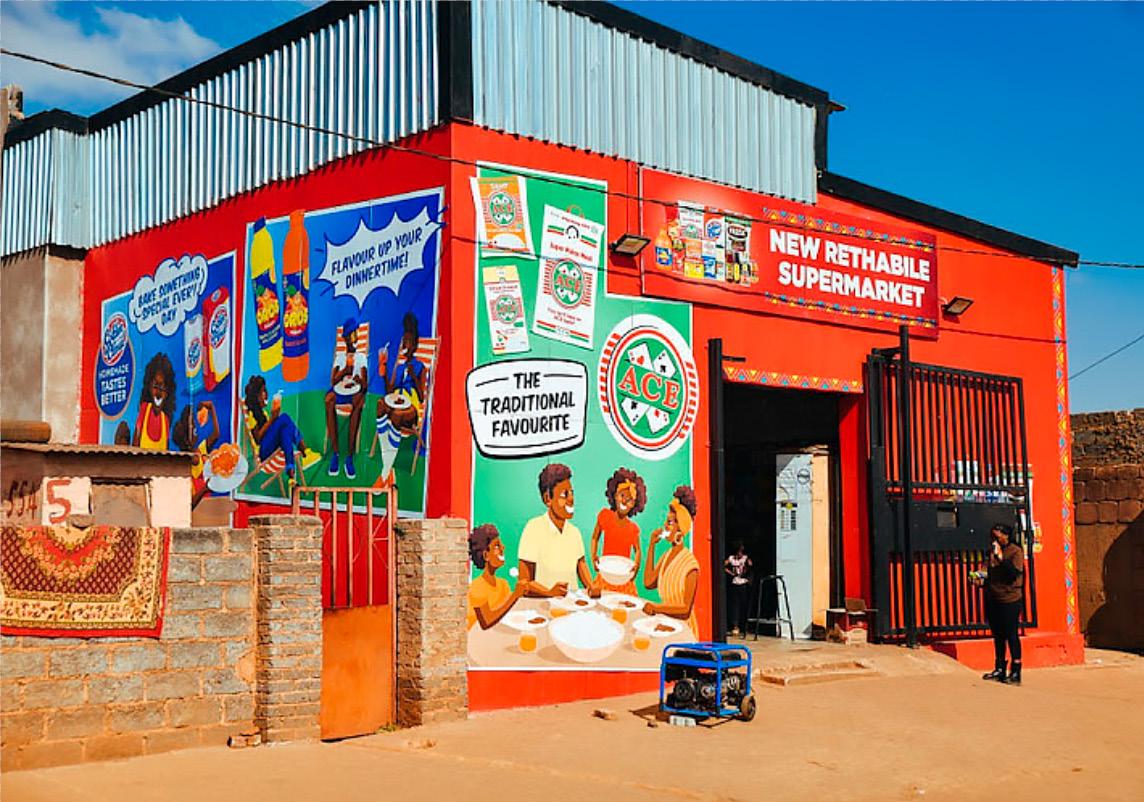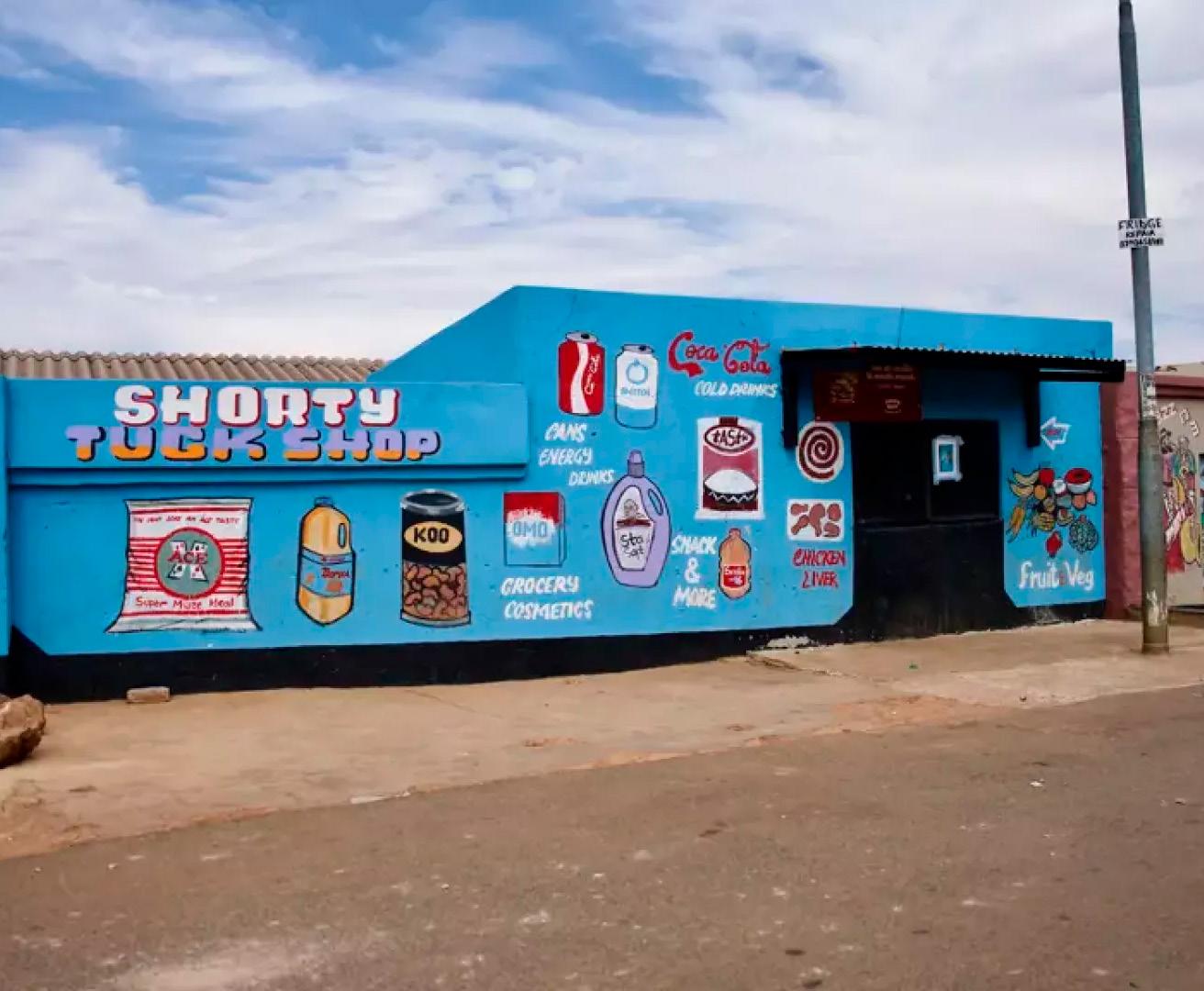
9 minute read
EMPOWERING THE HEARTBEAT OF SA'S ECONOMY: THE R500 MILLION SPAZA SHOP SUPPORT FUND
Small businesses, particularly spaza shops, have long been the backbone of South Africa's informal economy, especially in townships and rural areas. They are often the only access point for essential goods and services, providing livelihoods for thousands of families. Yet, despite their importance, these businesses face challenges ranging from inadequate infrastructure and limited access to funding, to outdated business practices. In a groundbreaking move aimed at transforming these businesses into key drivers of local economies, the South African government has launched the R500 million Spaza Shop Support Fund.
Officially launched on 8 April 2025, by Trade, Industry and Competition Minister Parks Tau and Small Business Development Minister Stella Tembisa Ndabeni, the Spaza Shop Support Fund is part of a broader effort to formalise the informal sector and stimulate inclusive economic growth. The fund aims to empower black-owned township convenience stores, including spaza shops, by providing them with the necessary tools, financial support, and training to grow and thrive in an increasingly competitive retail landscape.
This strategic initiative is not only about supporting small businesses but ensuring that they can help build local economies, create jobs, and ultimately reduce poverty in some of the most marginalised communities in South Africa.
The Vision Behind the Fund
The Spaza Shop Support Fund represents a significant step in the government’s efforts to uplift township and rural economies by enabling small, black-owned spaza shops to scale their operations and become pillars of community development. Minister Ndabeni-Abrahams articulated the broader objective of the fund during the official launch, stating, “Government recognises the important role that small businesses, including those operating in rural areas and townships, can play in creating jobs, growing our economy, and alleviating poverty.”

At its core, the fund is designed to formalise and support informal retail businesses, offering both financial and non-financial assistance. The support spans a wide range of needs, from stock acquisition and infrastructure upgrades to training in essential business skills such as digital literacy, customer service, and food safety. These resources will help spaza shop owners formalise their businesses and operate in a manner that is not only compliant with local regulations but also competitive in today’s rapidly evolving retail landscape.
The Key Objectives of the Fund
The Spaza Shop Support Fund is aligned with several critical national priorities, and its objectives go beyond just providing financial assistance. The fund aims to:
Empower Local Entrepreneurs:
The primary goal of the fund is to offer financial assistance to spaza shop owners to enable them to improve their businesses. By providing grants and lowinterest loans, the fund will help spaza shops purchase necessary stock, upgrade infrastructure, and implement modern technologies that can enhance their operations.
Create Jobs and Stimulate Local Economies:
Small businesses, particularly in townships and rural areas, have the potential to create jobs and stimulate local economies. By empowering spaza shop owners, the fund will help generate sustainable employment opportunities, not only within the shops themselves but also within their broader communities.
Increase Market Competitiveness:
In an era where larger retail chains are increasingly dominating the retail landscape, spaza shops need to become more competitive in order to survive. The fund will help businesses improve their infrastructure, increase access to highquality products, and adopt digital tools such as point-of-sale devices and inventory management systems that will allow them to operate more efficiently and offer better services.
Promote Economic Inclusion:
A key element of the fund is its focus on economic inclusion. By targeting spaza shops owned by young entrepreneurs, women, and people with disabilities, the fund seeks to create a more inclusive retail sector that gives marginalised groups the opportunity to participate in the country’s economic development.
The South African government has long sought to formalise the informal sector, which constitutes a significant portion of the country’s economy. The fund is part of this larger effort, providing businesses with the tools they need to comply with local regulations, pay taxes, and operate legally, ensuring their long-term sustainability.
Package 1: Up to R100,000
The first package provides up to R100,000 in financial assistance and is tailored to entrepreneurs who are in the early stages of formalising their businesses. This package includes:
Stock Grant: R40,000 to purchase stock through established delivery partners, enabling spaza shop owners to diversify their inventory and meet customer demand.
Infrastructure and Equipment Support: R50,000, provided as a blend of a grant and low-interest loan, to upgrade the shop’s infrastructure. This includes improvements to refrigeration, shelving, and security systems, which are critical for maintaining product quality and ensuring the safety of the premises.
Training Support: A further R10,000 worth of non-financial support, aimed at providing entrepreneurs with essential business skills such as digital literacy, food safety, point-of-sale device usage, and credit health. This training will empower owners to manage their operations more effectively and with greater efficiency.

"This fund marks another milestone in supporting rural and township economies, recognising the vital role small businesses play in job creation, economic growth, and poverty alleviation." - Minister of the Department of Small Business Development, Stella Ndabeni
Package 2: Up to R300,000
The second package is designed for businesses that are fully registered and compliant with local laws. This more comprehensive package offers up to R300,000 in financial assistance and includes:
Stock Grant: Up to R40,000 to help with the purchase of initial stock, ensuring that businesses can offer a wide range of products to meet community demand.
Infrastructure and Digital Transformation: A R250,000 blended finance component, which will allow spaza shops to invest in infrastructure upgrades, marketing, and digital tools such as point-of-sale devices, inventory management software, and accounting systems.
Non-Financial Support: R10,000 for implementing efficient stock management, accounting, and payment systems that can help streamline operations and improve profitability. This package also includes logistical support to help reduce costs related to deliveries and warehousing.

"This fund is a key part of our strategy to boost local economies, strengthen township businesses, and foster sustainable growth through greater access to resources and training." - Minister of the Department of Trade, Industry and Competition (DTIC), Parks Tau
How the Fund Works: Financial and Non-Financial Support
The Spaza Shop Support Fund is designed with two key packages that cater to the diverse needs of spaza shop owners at different stages of business development. These packages are aimed at both new and existing businesses that meet the fund’s eligibility criteria.
Through these two packages, the fund provides a balanced approach that addresses the diverse needs of spaza shop owners, ensuring they can improve their infrastructure, scale their operations, and adopt modern business practices that enhance their competitiveness.
Encouraging Local Production and Supply Chain Strengthening
One of the most significant aspects of the Spaza Shop Support Fund is its focus on strengthening the broader supply chain. In addition to providing direct support to spaza shops, the fund seeks to create synergies with local manufacturers, black industrialists, and wholesalers. By fostering partnerships with these key stakeholders, the fund will ensure that spaza shops have access to high-quality products at competitive prices.
“The fund aims to bolster the broader supply chain by fostering partnerships with local manufacturers, black industrialists, and wholesalers,” said Minister Tau. “Through bulk purchasing arrangements and the promotion of locally produced goods, spaza shops will benefit from reduced costs and increased access to quality products.”
The fund’s emphasis on local procurement not only supports the growth of the spaza shops but also contributes to South Africa’s broader industrialisation agenda. By creating a more robust and self-sustaining local retail supply chain, the fund seeks to reduce South Africa’s reliance on imports and stimulate local economic development.
Eligibility Criteria and Application Process
To ensure that the fund reaches the businesses that need it most, there are specific eligibility requirements that applicants must meet. These include:
Ownership: The business must be 100% South African-owned. Foreignowned businesses, even those owned by naturalised citizens, are not eligible unless the owner was naturalised prior to 1994.
Business Location: The spaza shop must operate in South Africa’s townships or rural areas and serve the local community.

Registration and Compliance: The business must be registered with the local municipality, and owners must comply with local by-laws and licensing requirements. Additionally, businesses must be registered with SARS for income tax and VAT.
Entrepreneurial Focus: The fund will prioritise entrepreneurs aged 18–35, as well as female-owned businesses or those owned by people with disabilities. Entrepreneurs interested in applying for the fund can visit their nearest Small
Enterprise Development Finance Agency (SEDFA) office for assistance or submit applications via the NEF or SEDFA websites. The government has also ensured that there is a streamlined and accessible application process to reduce barriers to entry for potential beneficiaries.

Local Government Support and Future Expansion
While the R500 million allocated for this fund is a significant starting point, Gauteng Finance and Economic Development MEC, Lebogang Maile, highlighted the need for further contributions to fully achieve the desired outcomes. “R500 million will not be enough,” he said, emphasising the need for local governments to augment this fund and focus on building the productive capacity of the township economy.
Maile’s comments underscore the broader concern that the township economy is currently consumption-based, with little focus on local production. The Township Revitalisation Programme, which began in 2014, has sought to address this issue by focusing on building industrial parks and promoting local manufacturing in townships. According to Maile, the goal is to ensure that the money spent in townships circulates within the local economy and contributes to the creation of sustainable industries.
Conclusion
The launch of the R500 million Spaza Shop Support Fund is a gamechanging development for South Africa’s informal retail sector. By providing targeted financial assistance, infrastructure upgrades, and training, the fund aims to empower spaza shop owners, drive economic growth, and create sustainable jobs in the country’s most underserved communities.
With its focus on inclusivity, local production, and long-term business sustainability, the fund offers an opportunity for entrepreneurs to build more resilient businesses that will contribute not only to their local economies but to the national economy as a whole.
For more information on eligibility and how to apply for the Spaza Shop Support Fund, visit : www.spazashopfund.co.za.










